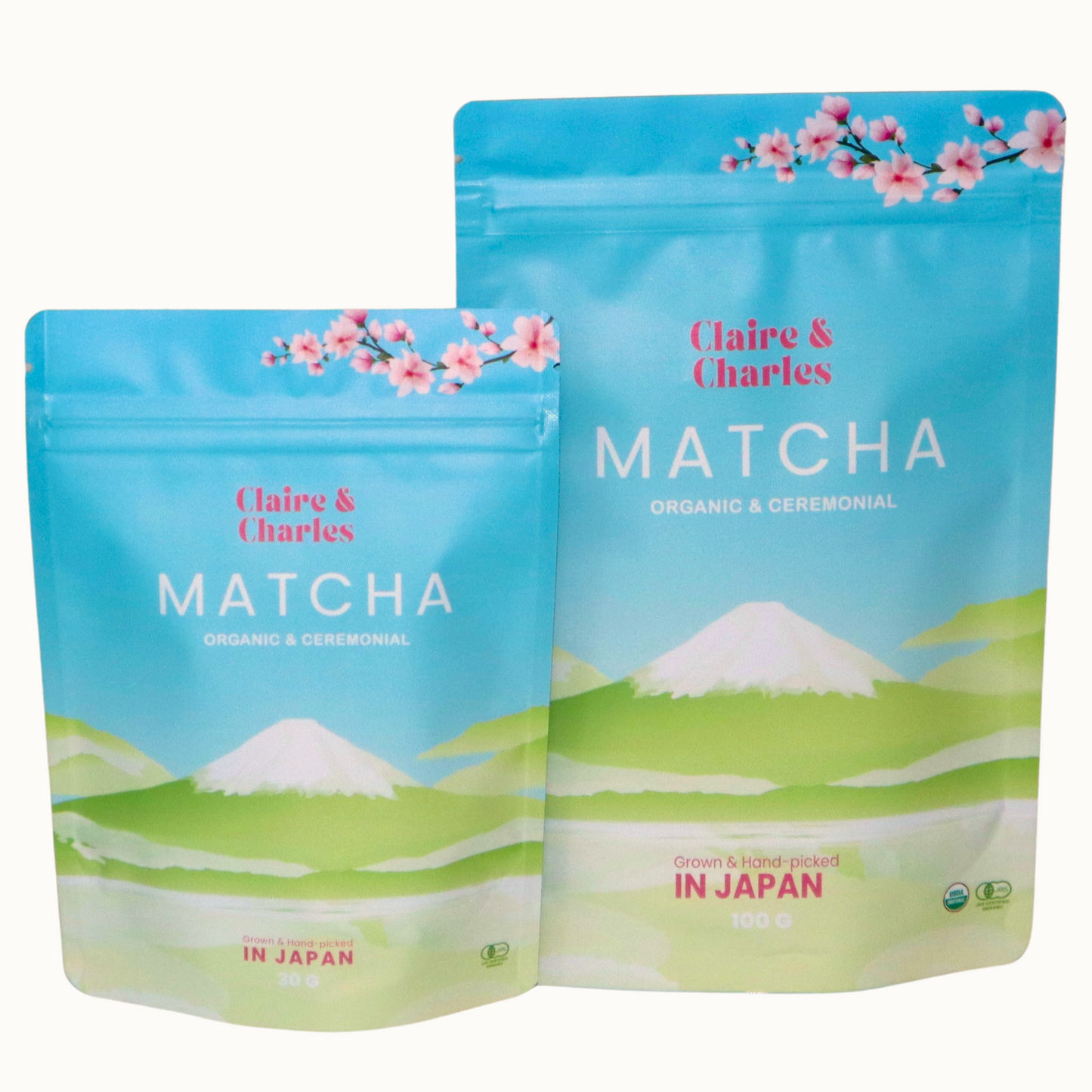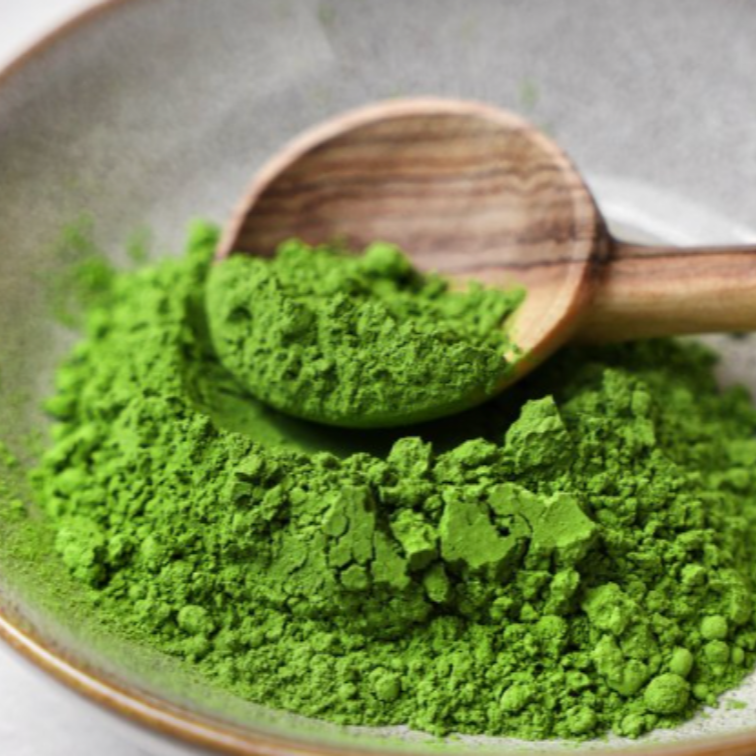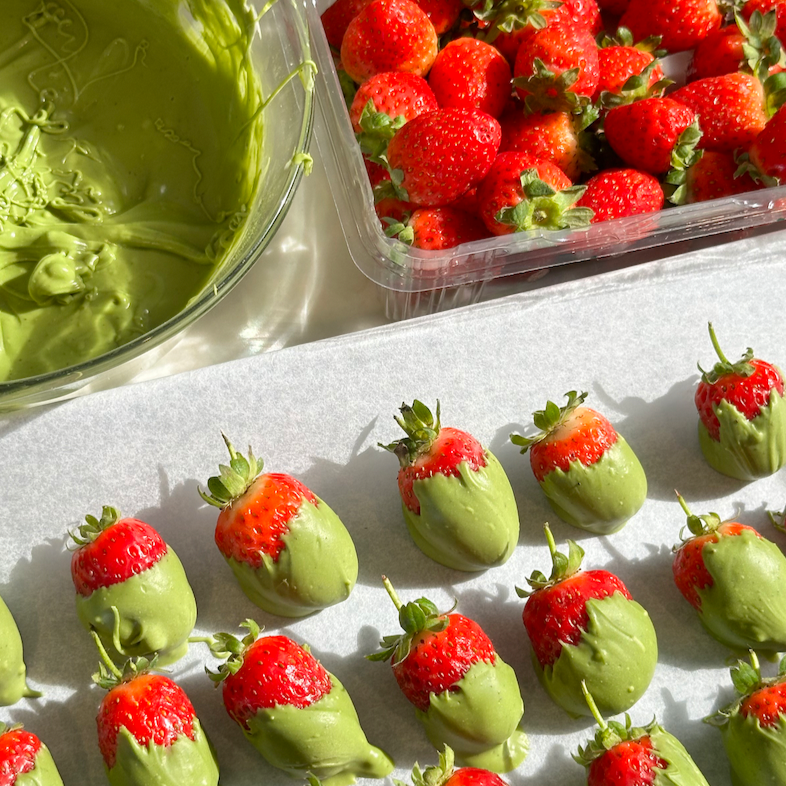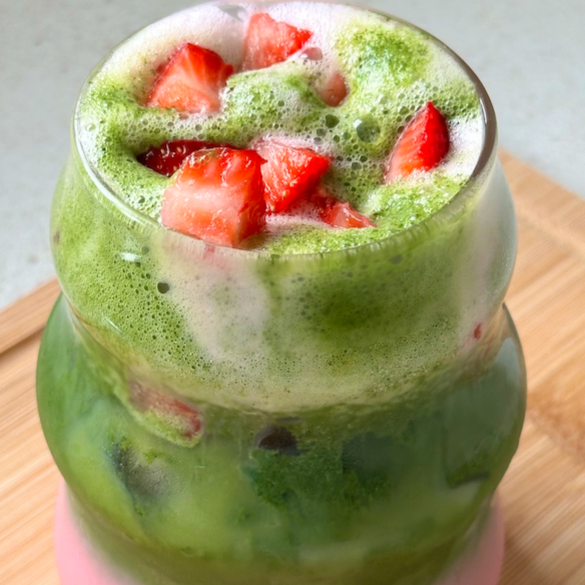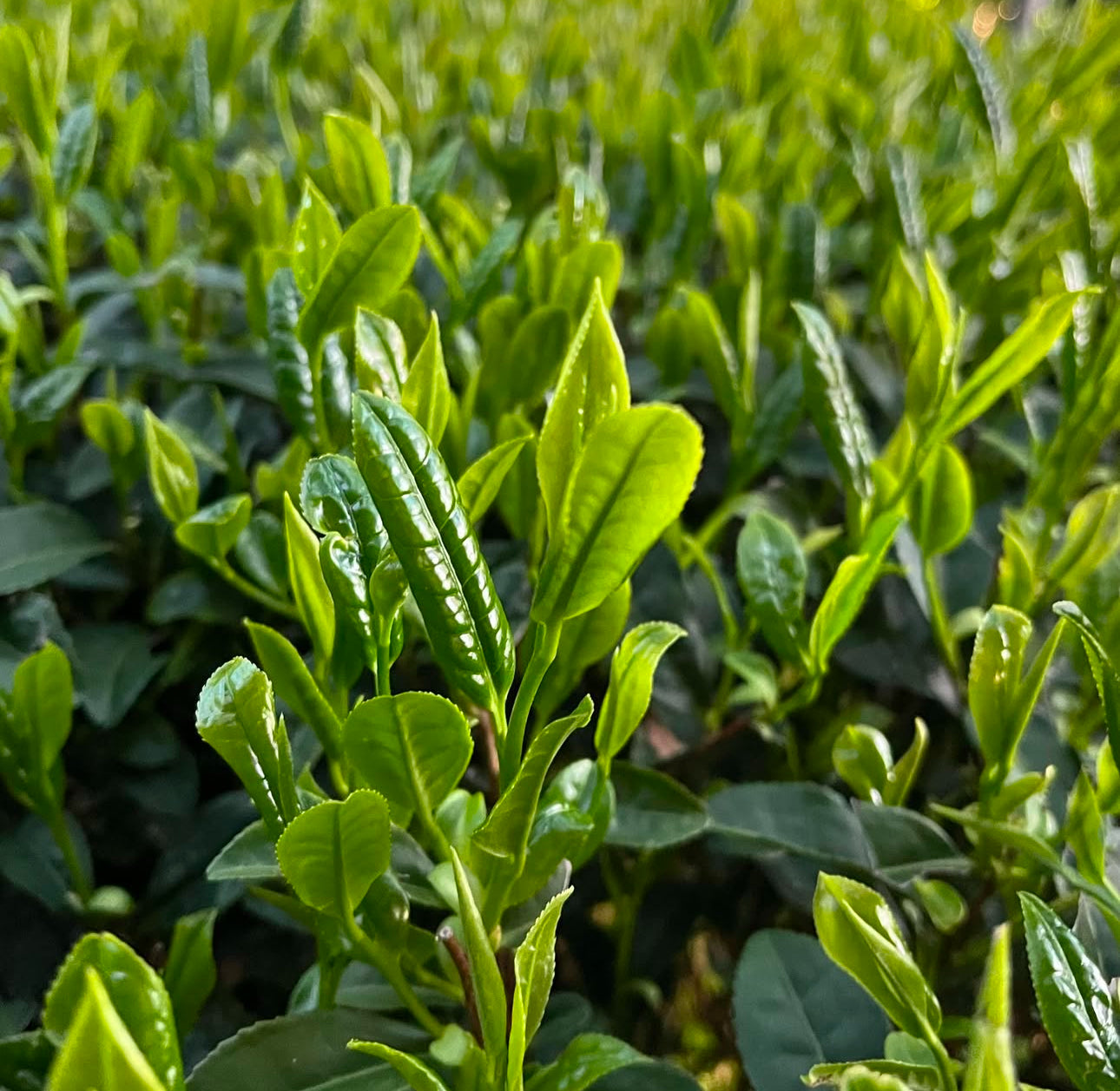
Meet our suppliers: Authentic, family-owned farms in Japan
Genuine, family-owned farms in Japan dedicated to cultivating premium, ceremonial-grade matcha with a deep respect for tradition and sustainability
Authentic Matcha cultivating process
-

Solar-powered shade
We use solar panels as part of our shelf cultivation method. The precise distance between the panels and the tea leaves allows for over 20 days of shading without direct contact, ensuring the leaves remain undamaged and can develop into high-quality tea. While tencha, the raw material for matcha, typically requires at least 20 days of shading, we extend this period to a full month just before harvest. By blocking 90% of sunlight, the shading process promotes the growth of theanine and amino acids while reducing the bitterness of catechins.
-

Dried With a Tencha Furnace
The tencha furnace utilizes radiant heat, creating a distinctive aroma that only a brick furnace can impart. This method ensures the leaves remain undamaged during drying, preserving their vibrant color and aroma, even after extended storage.
-

Removal of Tea Stems & Veins
The stems and veins are meticulously removed from the tencha before grinding in a stone mill, ensuring a smooth and refined flavour. If these parts are left intact, they cannot be properly ground, and the resulting fibrous material would produce an unpleasant taste. While advancements in tea mills have improved quality and efficiency, skipping this crucial step will always result in a less-than-optimal flavour.
-

Stone Milled
When ground in a stone mill, the grain size of matcha is incredibly fine—just 6 microns. This fine grind allows the matcha to form beautiful bubbles when whisked, creating a smoother, more enjoyable texture. The difference in quality is noticeable, as it takes about one hour to grind just 40 grams of matcha. This meticulous process reflects the time and effort required to produce rare, high-quality, and authentic ceremonial matcha.
FAQ
Is C+C matcha certified organic?
Our matcha is sourced from a JAS-certified farm in Japan, ensuring it meets the highest organic standards. JAS (Japanese Agricultural Standards) certification guarantees that the tea is grown without the use of harmful chemicals or pesticides, aligning with stringent organic farming practices. This certification not only affirms the quality and authenticity of our matcha but also ensures that it complies with Australian organic standards, making it a safe and healthy choice for our customers.
Is C+C matcha pesticide free?
We are committed to producing matcha that is not only of the highest quality but also free from harmful pesticides. We rely on organic farming techniques, including natural pest control methods, to protect the tea leaves without the use of chemicals. By choosing to grow pesticide-free matcha, we preserve both the quality and integrity of our product, allowing you to enjoy a cup that’s as clean as it is delicious.
Is C+C matcha ethically sourced and sustainable?
We are deeply committed to sustainable sourcing. We work closely with our suppliers to ensure that every step of the matcha production process is eco-friendly, from using organic farming methods to minimising waste. The integration of solar panels also powers our farming operations with renewable energy, making our matcha both naturally sweet and environmentally sustainable.
Claire and Charles
Organic Ceremonial Matcha
Share
